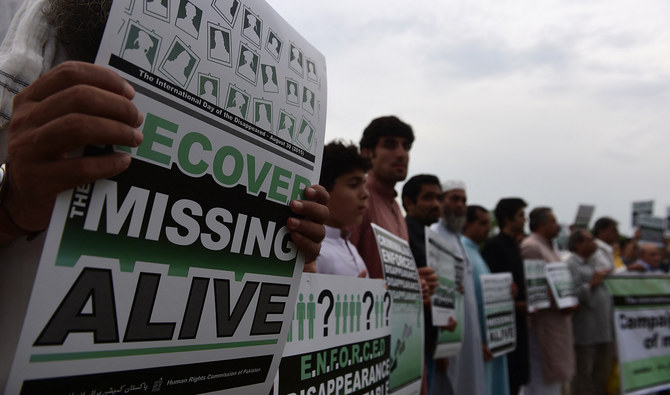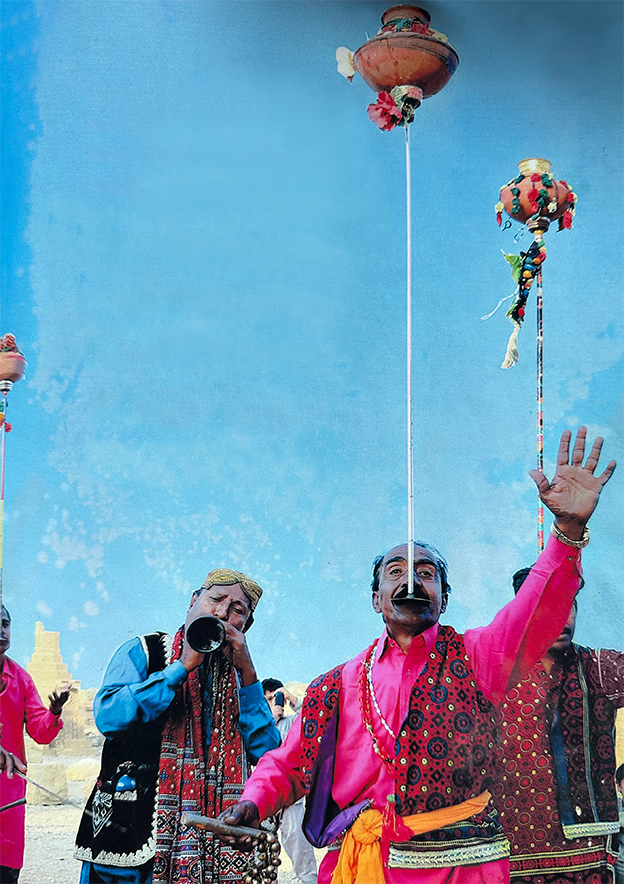ISLAMABAD: Pakistan will be reconstituting a committee to address the longstanding issue of “enforced disappearances,” Law Minister Azam Nazeer Tarar said on Tuesday, hours after the release of a US report highlighting rights abuses in the South Asian country.
Over the years, hundreds of political workers, rights activists and professionals have gone missing in Pakistan, particularly in the northwestern Khyber Pakhtunkhwa and the southwestern Balochistan provinces, where militants have waged a war against the state for decades.
Families say people picked up by security forces often disappear for years, and are sometimes found dead, with no official explanation. Pakistani security agencies deny involvement in such disappearances.
Speaking at a press conference in Islamabad, Tarar noted the former Pakistan Democratic Movement (PDM) government had formed a committee on the issue with the representation of all stakeholders.
“Now the work is being initiated on this again on the directives of the prime minister. A committee is going to be reconstituted, there will be parliamentary presence in that committee,” he said. “There is no lack of seriousness on the government’s part to resolve this issue.”
The minister said they visited the Quetta, the capital of Balochistan province, met with stakeholders there as well as reviewed reports on the matter from the tenure of the caretaker government.
Tarar said 10,200 cases of “missing persons” had been registered in the Commission of Inquiry on Enforced Disappearances (CIoED), out of which around 8,000 cases had been addressed.
He, however, said the issued could not be resolved “overnight,” adding that there had been no “concrete evidence” of the involvement of state agencies in these cases.
The law minister’s comments came hours after a report released by the US State Department said Pakistan’s government “rarely” took steps to identify and punish officials who may have been involved in rights abuses in 2023, pointing out incidents of extrajudicial killings, torture, enforced disappearances, violence against journalists and restrictions on media freedom.
“The government rarely took credible steps to identify and punish officials who may have committed human rights abuses,” the State Department said, pointing out Pakistan last year had seen incidents of restrictions on freedom of expression and media, violence against journalists, unjustified arrests, disappearances of journalists, censorship and criminal defamation laws.
Pakistan’s actions in recent months to restrict Internet and mobile services throughout the country, especially on days when elections are held, have invited criticism from rights organizations and Washington.
The interior ministry last week confirmed it had banned social media platform X in February to protect national security, maintain public order, and preserve the country’s “integrity.”
The South Asian country has seen an uptick in violence, mainly suicide attacks, since November 2022 when a fragile truce between militants and the state broke down.
Pakistan has since then carried out military operations against the Pakistani Taliban or the Tehreek-e-Taliban Pakistan (TTP) and a Baloch separatist militant organization, the Balochistan Liberation Army (BLA) in the country’s two western provinces that border Afghanistan.




















